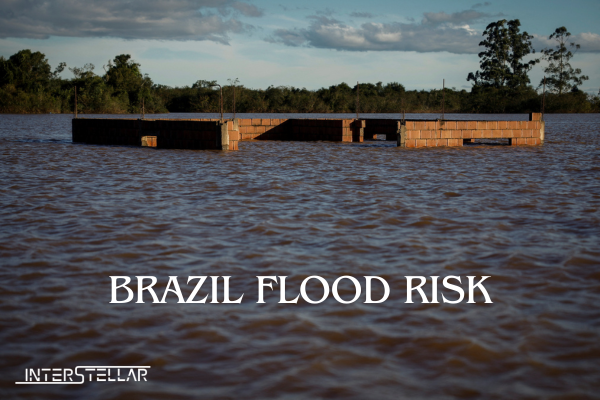Climate Change Doubles Risk of Southern Brazil Floods
Climate change has doubled the likelihood of the recent floods in southern Brazil, say international scientists. Heavy rains, intensified by the natural El Niño phenomenon, led to this disaster.
Over 170 lives were lost, and nearly 580,000 people were displaced after storms and floods hit Rio Grande do Sul, Brazil’s southernmost state, last month. Local authorities have called it the worst disaster in the region’s history.
An Extremely Rare Event
Experts from the World Weather Attribution group explained that the heavy rainfall, which submerged entire towns and destroyed critical infrastructure, was an “extremely rare” event. Such events are typically expected to occur only once every 100 to 250 years under current climate conditions. However, without the impact of burning fossil fuels, this event would have been even rarer.
Scientists combined weather observations with climate models and concluded that climate change had made the flooding in southern Brazil twice as likely and around 6% to 9% more intense.
Human Activities and Climate Change
“The climate in Brazil has already changed,” said Lincoln Alves, a researcher at Brazil’s space research centre INPE. “This attribution study confirms that human activities have contributed to more intense and frequent extreme events, highlighting the country’s vulnerability to climate change.”
Role of El Niño
The El Niño phenomenon, which increases temperatures and boosts rainfall and flood risks in the Americas, also played a part in the recent disaster. The study estimated that El Niño increased the probability of the event by a factor of 2 to 5 and made the rainfall 3% to 10% more intense.
Impact of Urbanisation and Infrastructure
Scientists also pointed out that the failure of critical infrastructure, deforestation, and rapid urbanisation in cities like Porto Alegre, the capital of Rio Grande do Sul, exacerbated the disaster’s effects. Porto Alegre is home to 1.3 million people.
Regina Rodrigues, a researcher at the Federal University of Santa Catarina, emphasised the importance of well-maintained flood protection infrastructure and appropriate urban planning to minimise the impact of such extreme events.





